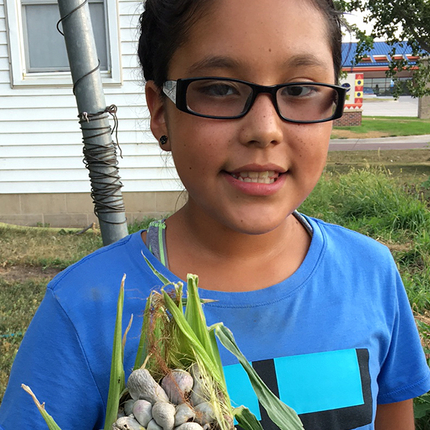By Mary Kuhlman, Nebraska News Service
Imagine having to travel 100 miles in order to get fresh, affordable food to your family's dinner table. That's life for a majority of Nebraska's Santee Sioux, as the nearest full service grocery store is an hour away.
A report from the Center for Rural Affairs examines this problem, as well as other barriers to food access.
Wyatt Fraas, assistant director of the Center’s Farm and Community Program, says that includes poverty and a lack of jobs.
"The Santee Reservation is like many reservations in the country and in fact, many rural communities where income is low and unemployment is high,” he points out. “So, having the money for food or for transportation to get food is a problem for many people."
Since 2015, the Center has worked with the Santee Sioux Reservation to research the food system and develop strategies to help the community move toward food sovereignty. Its report suggests increased public education, as well as creating better access points for local foods, such as mobile grocery stores, grocery co-ops and food hubs.
Fraas says interest in creating a self-reliant food system is growing among the Santee.
"After a few years of this garden and market activity people are becoming more aware of the possibilities of what they can do for themselves,” he relates. “This project and this report also help people to identify what they could do looking forward to improve the situation longer-term."
Fraas says there are also efforts to connect producers of locally grown foods to institutions on the reservation that already provide food to community members as part of their services.
"Senior housing, the Women, Infant and Children's program, and the health center also has other special programs where they provide food or meals,” he states. “All those things could be really directed at providing particularly healthful, nutritious, fresh foods that are not really part of those programs at this point."
The report also suggests changes to land-use policies. The majority of Santee Sioux Nation cropland is rented to non-tribal farmers, and Fraas says the tribe could repurpose a portion of it as a cornerstone of a healthful, local food system.





